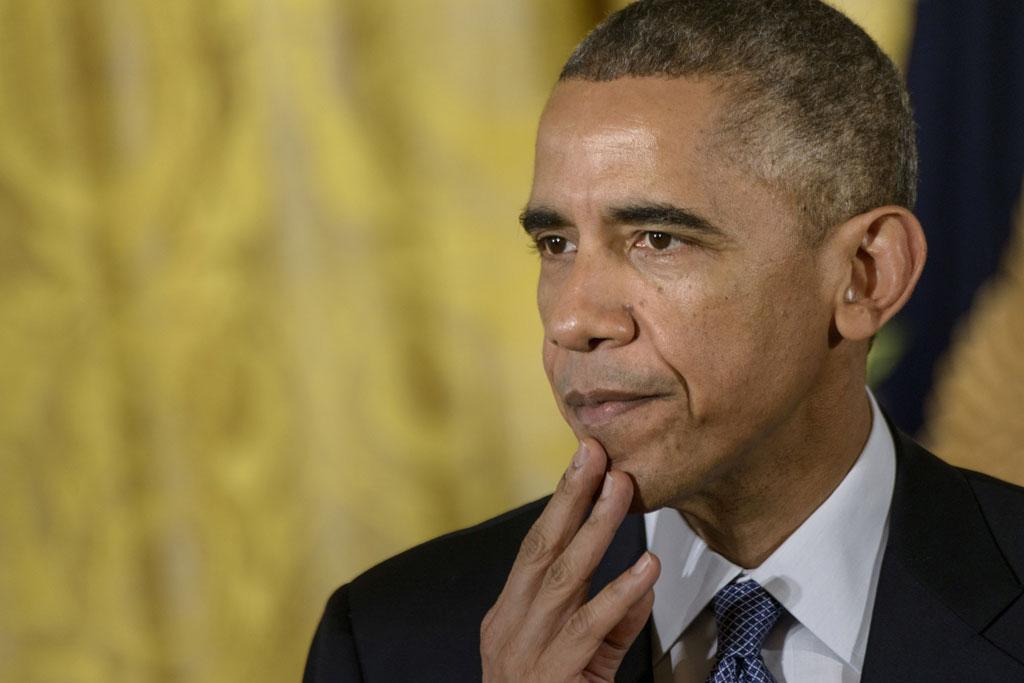Is the Obama presidency over? This has been the burning question on the lips of many Washington DC pundits and beltway insiders in the wake of devastating Democratic midterm election losses.
According to the ubiquitous Chuck Todd of NBC’s Meet the Press, the answer would seem to be a resounding yes as he has described the midterms as “a full-fledged repudiation” of the president.
Yet if history is any guide, such bold predictions are premature at best. For President Obama can take heart that two of his most recent predecessors in the Oval Office, Ronald Reagan and Bill Clinton, overcame comparable political debacles to record signature domestic and foreign policy triumphs in their final years in power.
Reagan: Overcoming Iran-Contra
In Reagan’s case, it certainly seemed that he was down for the final political count when it was publicly revealed in 1986 that his administration had been secretly selling arms to the terrorist-sponsoring Ayatollah Khomeini regime in Iran and illegally siphoning off the profits from the transactions to fund a US-backed Contra rebel force in Nicaragua.
Talk of impeachment subsequently filled the air on Capitol Hill but Reagan soldiered through it all by convincingly denying any direct knowledge of the sordid affair and pulling off one of the great diplomatic breakthroughs of the twentieth century.
Having carved out a political career as being a fervid foe of the “evil empire” and communism in general, Reagan shocked everyone, including many of his staunchest conservative supporters, by engaging in negotiations with the Soviet Union and its dynamic new leader Mikhail Gorbachev to help wind down nearly a half century of Cold War tensions between the East and West.
“We have a choice,” Reagan told Gorbachev when the two first met in person. “We can agree to reduce arms-or we can continue the arms race, which I think you know you can’t win. We won’t stand by and let you maintain weapon superiority over us. But together we can try to do something about ending the arms race.”
Amazingly, the two leaders were in unprecedented accord on this issue. In 1987, they signed off on the 1987 landmark Intermediate Range Nuclear Forces Treaty, which eliminated all intermediate range nuclear missiles in both sides’ arsenals, a prelude to the even more comprehensive arms and military force reduction agreements between the two superpowers.
“What we have achieved is the revival of hope,” said Gorbachev who would go on to preside over the official demise of the USSR in 1991. For Reagan the event arguably marked the crowning moment of his presidency and a healthy respect if not admiration for a determined adversary.
“Looking back now,” he wrote in his 1990 autobiography, “it’s clear that that there was a chemistry between Gorbachev and me that produced something very close to a friendship.” Not even the Iran-Contra imbroglio could take that away.
Clinton: Defying Impeachment
While Reagan faced possible impeachment in his second term, Bill Clinton was impeached thanks to a tawdry extramarital relationship between himself and a 24-year-old White House intern named Monica Lewinsky.
“I did not have sexual relations with that woman, Miss Lewinsky,” he memorably told a nation before admitting that he indeed had amidst a mountain of irrefutable evidence.
Refusing to take the option of resigning from office as Richard Nixon had done during the height of the Watergate scandal in 1974, Clinton doggedly persevered through a Constitutionally mandated trial in the Senate where he was finally acquitted of committing any “high crimes or misdemeanors” against the Republic.
Still, the political damage was done. Only one other Commander in Chief, Andrew Johnson, had ever been impeached in American history and that was in the tumultuous political aftermath of the Civil War and the assassination of Abraham Lincoln. None of this seemed to deter the aptly nicknamed “Man From Hope,” however.
As he defiantly said on the eve of his impending impeachment, “The real test of our ideas is whether they outlive this presidency; whether they are bigger than any candidate, any speech, any campaign and debate.” His notion of an expanding and prosperous national economy of opportunity, to go with the unexpected bonus of the first federal budget surplus in decades, was realized in his closing years along with a breakthrough peace agreement in Northern Ireland between traditionally warring Protestant and Catholic factions.
As both Reagan and Clinton examples prove, you can never count out a president irrespective of how badly the second term political situation around him may appear.
Evidence would suggest that Barack Obama has already grasped this fundamental point.
Just this past week, he came to an historic international agreement with Chinese leader Xi Jinping to limit both countries’ carbon emissions in the atmosphere over the coming years, announced major US troop increases to Iraq to combat the growing Islamic State threat and stated his intentions to take executive action on long delayed immigration reform at home.
Far from being done, Obama is catching his second political wind.
Thomas Whalen does not work for, consult to, own shares in or receive funding from any company or organisation that would benefit from this article, and has no relevant affiliations. This article was originally published on The Conversation. Read the original article.
